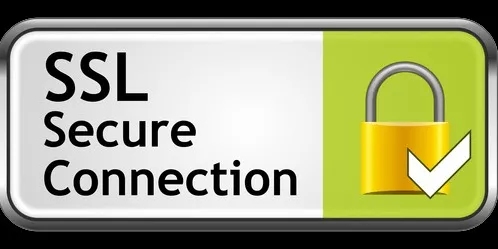

Importance of SSL Certificate for Organizations
SSL Certificates provide secure, encrypted communications between a website and an internet browser. Learn why SSL is necessary for enterprises & how to install an SSL from a trusted, commercial Certificate Authority
SSL protects the sensitive information in the website when it travels through the networks. Mostly you would have come across articles that describe the importance of having SSL certificates for e-Commerce websites. However, the truth is that, your website needs an SSL even if it doesn’t handle critical data like credit card details and so on. SSL keeps sensitive information sent across the Internet encrypted. The information becomes unreadable to everyone except for the server you are sending the information to. Thus it keeps up the privacy, critical security and data integrity for your websites as well as your customer’s personal information.

Let your customers feel safe on your site with an SSL certificate
Why is it Important?
"You can’t protect everything equally…we have to find a way to control only what matters,” said Earl Perkins.
The year 2017 recorded the highest number of data breaches, Cyber attacks & ransomware. Therefore many smart businesses are now taking every possible step to secure their website and one way is to install an SSL Certificate. As said above, SSL or Secure Socket Layer is used to secure the data transmitted over the internet between your computer and the destination servers making impossible for hackers to steal your information.
Gartner research has shown that 70% of online shoppers cancel an order because of the lack of trustworthiness of the website. Furthermore, 64% of those shoppers say that they would have completed an order had the website had a trust mark or SSL certificate.
Also Read: Cyber Security Threats 2018 and How to Stay Secure
Should I Use SSL?
A “Not secure” label in front of your website will shoo away the potential customer in a wink of an eye. This will ultimately result in loss of sales, right? Would you want this to happen? So without any doubt, install an SSL for your website. If you are e-commerce website, SSL installation is mandatory as this will not only keep your customer’s information safe but assure them that any transaction taking place via your site is totally secure. Further, the padlock in the navigation bar will assure clients that the website he/she has landed upon is not fake.

If the URL begins with a
How do you understand that a Website is SSL Protected?
Today because of rising cyber-attacks and other security breaches, many popular websites already have already integrated SSL in their website. You can know this by looking at their navigation bar on the website. If you notice a padlock; this means any data, you transmit to that particular website will be secure. Another way is by seeing the “HTTP” replaced with “HTTPS” in the URL.
Installation of SSL
The cost of a standard SSL certificate starts for around £ 29.00/pa a year depending on your hosting provider. In order to install an SSL on your server follow the steps shown below –
1. Generate a Certificate Signing Request (CSR)
2. This will help to determine which server will use your certificate. It will also impact the domain names that will be using the SSL.
3. The next step is to request an SSL certificate.
4. Note that you have to provide documents that prove you are the true owner of the domain if you are not hosting on your own server.
5. You will be issued a downloadable SSL certificate file that can be installed on your server.
6. Once your SSL is installed, it is recommended that you make a backup copy of the certificate and store is in a secure place. This will be very helpful for replacement in case of server crashes.
Bonus
Here are following tips to bear in mind when setting up your SSL certificate:
• Choose single, multi-domain, or wildcard certificate which will be best for your business.
• Use SSL certificates that are from trusted sources and are with 2048-bit keys.
• Allow indexing of website pages by the search engines. Avoid the noindex robots meta tag wherever possible.
• For all other domains use protocol relative URLs







